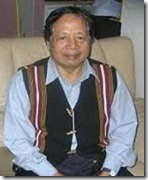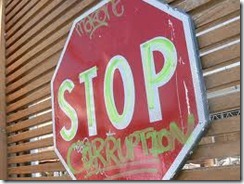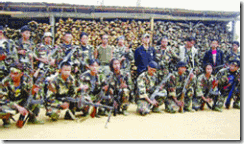By Jyoti Malhotra

New Delhi Jul 26 : Dhaka allows transit, ready for more, even as Delhi preoccupied in pushing ties with Pakistan.
India — or at least the ministry of external affairs, as well as Delhi’s Pakistan-centric media — is gearing up to receive Pakistan’s newly promoted foreign minister, Hina Rabbani Khar, for her first visit to India on Wednesday. Yet, the truth is that Bangladesh has been quietly undertaking radical breakthroughs in promoting connectivity on India’s eastern flank that have received little or no publicity in the capital.
Bangladesh commerce minister, Mohammed Farouk Khan, has told his Indian counterpart, Anand Sharma, that Dhaka will give India access to Chittagong port, so as to make transportation of goods to our northeast states easier and cheaper.
The assurance was appropriately given late last week at the small border outpost of Kalaichar in Meghalaya, which borders Bangladesh, when Sharma and Farouk got together to inaugurate a trading entrepot, locally known as a ‘haat’ at the border.
“India can use not only Chittagong but several other ports that we have developed in recent years. Other neighbouring countries such as Nepal, Bhutan and Myanmar can also use our ports for trade and commerce in the future,” Khan told Sharma, who profusely welcomed the move.
Clearly, Dhaka seems to be bravely papering over the recent hiccup over Prime Minister Manmohan Singh’s comments on the allegedly growing Islamic radicalisation of Bangladesh, by proceeding with the common understanding that economic connectivity is the way forward if Bangladesh has to share in India’s rapid economic growth.
EASING ON PAKISTAN
Meanwhile, as Foreign Minister S M Krishna prepares to receive Khar, word is that the government is finalising key confidence-building measures to promote both people-to-people interaction as well as push trade across the border.
The idea, official sources said, is to push the India-Pakistan relationship on two parallel tracks. That is, keep the focus on cracking down on terror on the one hand – especially, to push Pakistan to give voice samples of the seven terrorists accused of fomenting the November 2008 Mumbai attacks, as well as hasten the domestic process to act against the accused — and to ease restrictions for ordinary people in both countries so that they don’t bear the brunt of government anger.
On the cards, therefore, are measures to improve relations both across the international border at Wagah-Attari in Punjab and the Line of Control in Kashmir, so as to target both key constituencies, as well as the gesture to unilaterally release 90 Pakistani fishermen in Indian jails.
Fishermen from both sides are routinely picked up by the Coast Guard from both countries when they unknowingly cross the maritime boundary across the Gulf of Kachchh and the Sir Creek area, because there are no markers that divide the sea. On the Wagah-Attari front, the proposal is to enhance the number of days that trade can take place, from two to four days per week. Across the LoC in Kashmir, the idea is to increase the bus service between Srinagar and Muzaffarabad, streamline permits for traders, increase the number of commodities that can be traded and improve telephone facilities.
HANDLING HARDLINERS
Discussions on an easier visa regime are also on the cards, but this will not materialise during Khar’s visit because the home ministries control this aspect of the bilateral relationship. The home ministry in India has severely cracked down on issuing visas for Pak visitors, especially after the Mumbai attacks, including to Pakistani businessmen. While the ministries of commerce and external affairs hope they will soon make some headway on this front, the home ministry is holding out for reciprocal information from Pakistan on the Mumbai attacks.
Home minister P Chidambaram and his Pakistani counterpart Rehman Malik have just met at Thimphu on the margin of the Saarc interior ministers meeting, and officials said Islamabad was being persuaded to send a delegation to provide greater information on the Mumbai attacks.
Nevertheless, the fact that India is moving to dilute its own border controls, in the face of strong opposition from the home ministry, shows that the Prime Minister’s desire to use trade and economic interaction to pave the way for greater understanding and political dialogue is moving forward.
Clearly, Manmohan Singh seems to have outsourced the economic relationship between India and it’s neighbours to the commerce ministry, a charge that Anand Sharma has accepted with enthusiasm and some relish. A former minister of state in the external affairs ministry, Sharma understands well that he can use his current portfolio to maximise gains that are ripe for the picking, thereby enhancing his own profile in the bargain.
DHAKA PAYOFF
For example, the idea to open border ‘haats’ or trading outposts between India’s several northeast states and the neighbouring countries of Bangladesh and Myanmar are not new. In fact, they have been pending for several years. But politicians in charge of the commerce ministry have been disdainful of travelling to the backwaters of Meghalaya and Tripura to promote interaction with India’s poorer neighbours, believing they must focus on trendier, first world nations in Europe and the US.
Sharma’s initiative to travel to Kalaichar in Meghalaya last week is creditable, believe analysts. They also point out that he must now bite the bullet on textiles, ignore lobbies and throw open trade in textiles both with Pakistan and Bangladesh, an area in which both countries are proficient.
Although India has enhanced duty-free access to garments from Bangladesh from eight to 10 million pieces per year, Dhaka remains unhappy at Delhi’s unwillingness to contemplate a free trade treaty. But with Bangladeshi prime minister Sheikh Hasina having shown the way by allowing Delhi access to the Chittagong port — something each government in Dhaka has refused since 1971 — it may be time for Prime Minister Manmohan Singh to return the gesture.
Dhaka, in fact, has already done more, behind the scenes. India has already started sending heavy machinery down an inland waterway through Bangladesh to the small port at Ashuganj, close to a Bangladeshi town called Akhaura, barely 10 km away from Agartala, the capital of Tripura. For the record, Indian goods have already begun to transit through Bangladesh, unnoticed, for the first time since the latter became a free nation in 1971.
All eyes on border haats as Indo-Bangla biz swells
SHILLONG: Trade between India and Bangladesh has increased from $ 2.7 billion in 2009-10 to $ 3.9 billion in 2010-11, showing a nearly 45 per cent increase. The growth of exports from Bangladesh to India has gone up to $ 0.39 billion in 2010-11 from $ 0.25 billion in 2009-10.
On Saturday last, Union commerce, industry and textiles minister Anand Sharma and his Bangladeshi counterpart, Muhammad Faruk Khan, inaugurated a border haat (weekly market) at Kalaichar in Meghalaya's West Garo Hills district. It is expected that the re-opening of the traditional haats, which were shut down after creation of Bangladesh, would restore economic and commercial ties between the people living on the either side of the international border.
The second border haat proposed at Balat on Indian side and Lauwaghar in Bangladesh will also be inaugurated shortly. It is estimated that bilateral trade worth $ 20 million will take place every year from the border haats.
"During the recent visit of the external affairs minister of India to Bangladesh, instruments of ratification in respect of the Bilateral Investment Promotion and Protection Agreement (BIPPA) were exchanged. This will greatly facilitate two-way investments. The agreement aims at creating favourable conditions for fostering and encouraging investments between the two countries," an official source said.
"Both the countries have made significant forward movement in their cooperation in the power sector, including establishment of grid connectivity up to 500 MW of power from India. Of this, 250 MW will be at a preferential rate. India responded positively to Bangladesh's request for setting up of a high technology joint venture thermal power plant of 1320 MW capacity at Khulna and has completed the feasibility report," the source added.
Till 1971, residents from the border areas of the then East Pakistan used to cross over to the Indian side for exchange of goods. But, after creation of Bangladesh, the border haats were closed. History has it that border haats in Meghalaya were functional even during the Mughal period.
Besides the border haats, both sides are working on several projects to improve trade infrastructure and connectivity. The border management department of the Union home ministry is developing seven integrated check posts on the India-Bangladesh border - at Petrapole, Agartala, Dawki, Hili, Chandrabangha, Sutarkhandi and Kawarpuchiah. Further, India is developing infrastructure at eight land custom stations along the frontier at Rs 108.19 crore. According to the proposal, the land custom stations will come up at Borosora, Dalu, Ghasupara, Mahadipur, Hilli, Phullbari, Srimantpur and Gojadanga. The projected development cost of all the integrated check posts and the land customs stations is $ 125 million.
"India has welcomed the offer of the Bangladesh government to use Chittagong and Mongla ports. This will, no doubt, provide tremendous benefit for trade and development of Bangladesh as well as the North-East of India. India has already finalized and shared the draft modalities with the Bangladeshi side," the source said.
 Aizawl, Jul 26 : Mizoram-based Zo Re-unification Organisation (ZORO) has highly hailed Mizoram Chief Minister Lal Thanhawla’s statement in favour of the Zoro’s quest for reunification of Mizo or Zo tribes across the region.
Aizawl, Jul 26 : Mizoram-based Zo Re-unification Organisation (ZORO) has highly hailed Mizoram Chief Minister Lal Thanhawla’s statement in favour of the Zoro’s quest for reunification of Mizo or Zo tribes across the region.


















 New Delhi, Jul 26 : Peeved at being ignored for the prestigious Arjuna Award, top woman weightlifter Renu Bala Chanu has decided to return the gold medal she won in the Commonwealth Games last year to the Sports Minister.
New Delhi, Jul 26 : Peeved at being ignored for the prestigious Arjuna Award, top woman weightlifter Renu Bala Chanu has decided to return the gold medal she won in the Commonwealth Games last year to the Sports Minister. 


